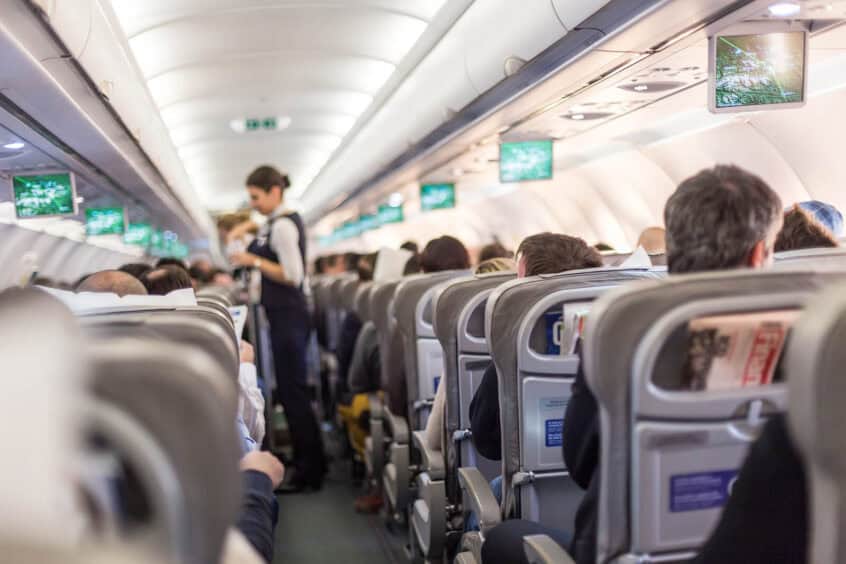Helpful Tips for Traveling With Hearing Loss for the Holidays

For individuals with hearing loss, traveling can present some unique challenges. However, there’s no need to feel overwhelmed. With some planning and a few practical tips, you can ensure a smooth and enjoyable journey.
Proper planning is key to a successful trip. Well before your travel date, make a list of everything you’ll need, from hearing aid batteries to travel-friendly chargers.
If you are currently struggling with outdated hearing devices that make it difficult to hear, consider upgrading them a few weeks before your trip. Modern technological advancements offer improved speech clarity in group settings and noisy environments, ensuring your conversations with friends and loved ones are more meaningful and enjoyable.
If your hearing loss is severe, it’s a good idea to contact your airline to inform them about your hearing needs. Many airlines offer assistance for passengers with hearing loss, such as visual alerts for boarding announcements. Similarly, notify hotels about your requirements. Ask if they have rooms equipped with visual alert systems or vibrating alarm clocks.
When packing, double-check to ensure you have all essential items. Extra hearing aid batteries, chargers, and cleaning tools are vital. Include a waterproof container or zip-lock bag to protect your hearing aids from moisture during the trip.
Use Visual Alerts
Many airports use visual alerts for important announcements. Pay close attention to these displays to avoid missing any important information. If you can’t see the displays clearly, don’t hesitate to ask the airport staff for assistance.
Enjoying Holiday Festivities
Holiday gatherings are all about connecting with loved ones. Here are some strategies to ensure you can enjoy these moments.
Optimize Seating Arrangements
When gathering around the dinner table, choose a seat that allows you to see most people’s faces. This can help you follow conversations more easily. Background noise can make it difficult to hear. If possible, suggest lowering the volume of background music or moving to a quieter area for conversations. Your friends and family will likely be happy to accommodate this small change.
Use Assistive Listening Devices (ALDs)
Consider using assistive listening devices (ALDs) to enhance your hearing experience. These innovative devices can amplify sounds directly to your hearing aids, making it easier to hear in noisy environments and improving overall communication. ALDs come in various forms and serve different purposes.
Types of ALDs
Personal Sound Amplification Systems: These portable devices, such as Bluetooth TV headphones, can be used with or without hearing aids to amplify sound from televisions, radios, or in-person conversations.
FM Systems: FM systems use radio signals to transmit a speaker’s voice directly to the listener’s hearing device, reducing background noise and overcoming distance limitations.
Hearing Loops: These systems use electromagnetic energy to transmit sound in public spaces like airports. Users with telecoil-equipped hearing aids can easily connect to the loop system for improved audio clarity.
Bluetooth-enabled Devices: Modern ALDs often integrate Bluetooth technology, allowing seamless connection to smartphones, tablets, and other devices for direct audio streaming and improved control over listening settings.
Conclusion
Traveling with hearing loss during the holidays does not have to be stressful. By planning ahead, using helpful tools, and following these practical tips, you can make your trip enjoyable and stress-free. Remember, communication is key, and don’t hesitate to ask for assistance when needed. Enjoy your holiday travels and make the most of the wonderful season!
